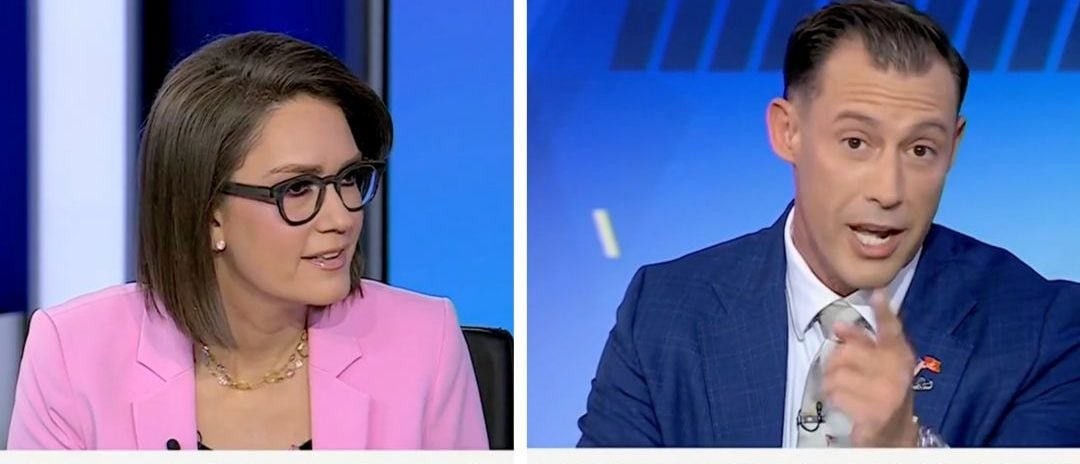From Boston to Los Angeles, teachers unions and their progressive allies have quietly devised an unprecedented way to circumvent the legislative process by burying unrelated policy issues deep within the complex terms of teacher contracts. .
Hidden in plain sight, this new covert strategy allows state and local officials to review publicly available bills, committee hearings, amendments, and general floor debates. It allows for the creation of fundamental policy changes that avoid the scrutiny normally associated with customary legislative procedures, including
In Boston, teachers union president Jessica Tan announced They secured “an unprecedented $50 million to begin strengthening the affordable housing Boston students and families need.” Similarly, teachers in Los Angeles have incorporated “housing justice provisions” into their lessons. contract. (Related: Stephanie Holden Smith: It's time to keep America's largest teachers union out of politics)
Whatever the benefits of affordable housing, it is a long shot to claim that this issue is related to what is properly included in a teacher's contract.
However, Boston contract It is used as a template by the AFL-CIO to promote housing and environmental “justice.” During a panel discussion on worker and community partnerships at the recent Connecticut AFL-CIO biennial conference, the president of the New Haven Federation of Teachers said in a video: This is how we maintain these relationships and continue to move our relationship forward. collective agenda. ”
Collective bargaining agreements can run from dozens to hundreds of pages and cover nearly every aspect of compensation, including wages, hours, and conditions, as well as medical and severance benefits. These agreements are often intentionally drafted in jargon-heavy and ambiguous terms and require knowledge of local negotiation history to properly interpret.
These agreements are negotiated in the name of taxpayers, but in practice the taxpayers are often ignored in the process. The contract receives a vote from the legislative body, but it is usually a binary up-or-down choice by elected officials. There is no open deliberation process to consider individual contract clauses or suggest amendments.
Public sector unions have long used their significant political influence to draw attention to social issues far beyond the scope of their work in the public sector, but this strategy completely undermines their advocacy. Take it to a new level. From vocal supporters of socialist reform, they increasingly seek to use collective agreements negotiated in dimly lit back rooms to impose their policies on an often reluctant public.
This nefarious tactic will be used by labor unions and unscrupulous state and local negotiators to enact a vast list of far-left social programs that will never gain support in a democratic process. It provides a convenient hiding place for government officials seeking to avoid political responsibility.
By creating omnibus policy packages within collective agreements, the political class can silence dissent and distract from the merits of reasonable dissent. It's much easier to argue that anyone who voted against a collective bargaining agreement is anti-teacher, anti-worker than it is to defend expensive (and potentially unpopular) new social programs. .
The unions are telling us what they are going to do. We can no longer ignore this reality.
Municipal bargainers, teachers unions, and their progressive allies leverage the fine print of collective bargaining agreements to advance collective agendas rooted in Marxist ideology and advance social programs that could never pass through the normal legislative process. Masu. Even if their intentions seem noble, incorporating unrelated policy issues into teacher contracts raises concerns about transparency and accountability and blurs the line between union advocacy and the public interest. Make it.
In an era where we are witnessing a decline in student achievement, teacher contracts must focus on education as student scores in reading, math, science, and civics decline and achievement gaps widen. There is. However, more and more attention is being paid to distractions that are not related to education.
The union's agenda to implement radical policy changes through collective bargaining must be exposed, along with negotiators trained to block these proposals. Additionally, reforms are desperately needed to limit the scope of collective bargaining, bring negotiations into the open, and ensure that the entire process is visible to the public who pays the contracts. That is our best hope for striking a prudent balance between the interests of taxpayers and the well-being of our workforce.
Frank Rich is a Labor Fellow at the Yankee Institute and a retired union president and battalion chief for the New Haven (Conn.) Fire Department.He was the lead plaintiff in the landmark Supreme Court case Ricci v. DeStefano and testified before Congress.Frank is the author of the book Existence of command.
The views and opinions expressed in this commentary are those of the author and do not reflect the official position of the Daily Caller News Foundation.
All content produced by the Daily Caller News Foundation, an independent, nonpartisan news distribution service, is available free of charge to legitimate news publishers with large audiences. All republished articles must include our logo, reporter byline, and DCNF affiliation. If you have any questions about our guidelines or partnering with us, please contact us at licensing@dailycallernewsfoundation.org.
















